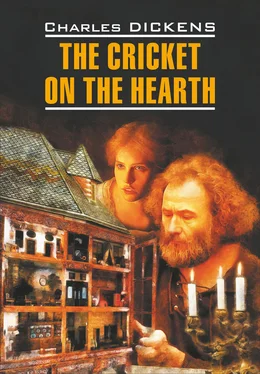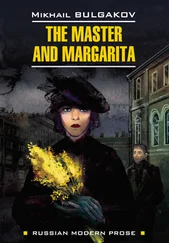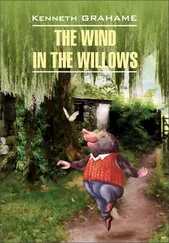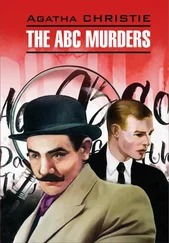Charles Dickens / Чарльз Диккенс
The Cricket on the Hearth / Сверчок за очагом. Книга для чтения на английском языке
Комментарии и словарь Е. Г. Тигонен
© КАРО, 2016
Chapter 1
Chirp the First
The kettle began it! Don’t tell me what Mrs. Peerybingle said. I know better. Mrs. Peerybingle may leave it on record to the end of time that she couldn’t say which of them began it; but, I say the kettle did. I ought to know, I hope! The kettle began it, full five minutes by the little waxy-faced Dutch clock in the corner, before the Cricket uttered a chirp.
As if the clock hadn’t finished striking, and the convulsive little Haymaker at the top of it, jerking away right and left with a scythe in front of a Moorish Palace, hadn’t mowed down half an acre of imaginary grass before the Cricket joined in at all!
Why, I am not naturally positive. Every one knows that. I wouldn’t set my own opinion against the opinion of Mrs. Peerybingle, unless I were quite sure, on any account whatever. Nothing should induce me. But, this is a question of fact. And the fact is, that the kettle began it, at least five minutes before the Cricket gave any sign of being in existence. Contradict me, and I’ll say ten.
Let me narrate exactly how it happened. I should have proceeded to do so in my very first word, but for this plain consideration – if I am to tell a story I must begin at the beginning; and how is it possible to begin at the beginning, without beginning at the kettle?
It appeared as if there were a sort of match, or trial of skill, you must understand, between the kettle and the Cricket. And this is what led to it, and how it came about.
Mrs. Peerybingle, going out into the raw twilight, and clicking over the wet stones in a pair of pattens that worked innumerable rough impressions of the first proposition in Euclid all about the yard – Mrs. Peerybingle filled the kettle at the water-butt. Presently returning, less the pattens (and a good deal less, for they were tall and Mrs. Peerybingle was but short), she set the kettle on the fire. In doing which she lost her temper [1] lost her temper – ( разг. ) разозлилась
, or mislaid it for an instant; for, the water being uncomfortably cold, and in that slippy, slushy, sleety sort of state wherein it seems to penetrate through every kind of substance, patten rings included – had laid hold of Mrs. Peerybingle’s toes, and even splashed her legs. And when we rather plume ourselves (with reason too) upon our legs, and keep ourselves particularly neat in point of stockings, we find this, for the moment, hard to bear.
Besides, the kettle was aggravating and obstinate. It wouldn’t allow itself to be adjusted on the top bar; it wouldn’t hear of accommodating itself kindly to the knobs of coal; it would lean forward with a drunken air, and dribble, a very idiot of a kettle, on the hearth. It was quarrelsome, and hissed and spluttered morosely at the fire. To sum up all, the lid, resisting Mrs. Peerybingle’s fingers, first of all turned topsy-turvy, and then, with an ingenious pertinacity deserving of a better cause, dived sideways in – down to the very bottom of the kettle. And the hull of the Royal George has never made half the monstrous resistance to coming out of the water, which the lid of that kettle employed against Mrs. Peerybingle, before she got it up again.
It looked sullen and pig-headed enough, even then; carrying its handle with an air of defiance, and cocking its spout pertly and mockingly at Mrs. Peerybingle, as if it said, ‘I won’t boil. Nothing shall induce me!’
But Mrs. Peerybingle, with restored good humour, dusted her chubby little hands against each other, and sat down before the kettle, laughing. Meantime, the jolly blaze uprose and fell, flashing and gleaming on the little Haymaker at the top of the Dutch clock, until one might have thought he stood stock still before the Moorish Palace, and nothing was in motion but the flame.
He was on the move, however; and had his spasms, two to the second, all right and regular. But, his sufferings when the clock was going to strike, were frightful to behold; and, when a Cuckoo looked out of a trap-door in the Palace, and gave note six times, it shook him, each time, like a spectral voice – or like a something wiry, plucking at his legs.
It was not until a violent commotion and a whirring noise among the weights and ropes below him had quite subsided, that this terrified Haymaker became himself again. Nor was he startled without reason; for these rattling, bony skeletons of clocks are very disconcerting in their operation, and I wonder very much how any set of men, but most of all how Dutchmen, can have had a liking to invent them. There is a popular belief that Dutchmen love broad cases and much clothing for their own lower selves; and they might know better than to leave their clocks so very lank and unprotected, surely.
Now it was, you observe, that the kettle began to spend the evening. Now it was, that the kettle, growing mellow and musical, began to have irrepressible gurglings in its throat, and to indulge in short vocal snorts, which it checked in the bud, as if it hadn’t quite made up its mind yet, to be good company. Now it was, that after two or three such vain attempts to stifle its convivial sentiments, it threw off all moroseness, all reserve, and burst into a stream of song so cosy and hilarious, as never maudlin nightingale yet formed the least idea of.
So plain too! Bless you, you might have understood it like a book – better than some books you and I could name, perhaps. With its warm breath gushing forth in a light cloud which merrily and gracefully ascended a few feet, then hung about the chimney-corner as its own domestic Heaven, it trolled its song with that strong energy of cheerfulness, that its iron body hummed and stirred upon the fire; and the lid itself, the recently rebellious lid – such is the influence of a bright example – performed a sort of jig, and clattered like a deaf and dumb young cymbal that had never known the use of its twin brother.
That this song of the kettle’s was a song of invitation and welcome to somebody out of doors: to somebody at that moment coming on, towards the snug small home and the crisp fire: there is no doubt whatever. Mrs. Peerybingle knew it, perfectly, as she sat musing before the hearth. It’s a dark night, sang the kettle, and the rotten leaves are lying by the way; and, above, all is mist and darkness, and, below, all is mire and clay; and there’s only one relief in all the sad and murky air; and I don’t know that it is one, for it’s nothing but a glare; of deep and angry crimson, where the sun and wind together; set a brand upon the clouds for being guilty of such weather; and the widest open country is a long dull streak of black; and there’s hoar-frost on the finger-post, and thaw upon the track; and the ice it isn’t water, and the water isn’t free; and you couldn’t say that anything is what it ought to be; but he’s coming, coming, coming! —
And here, if you like, the Cricket did chime in [2] did chime in – ( разг. ) подал голос; вступил в разговор
! with a Chirrup, Chirrup, Chirrup of such magnitude, by way of chorus; with a voice so astoundingly disproportionate to its size, as compared with the kettle; (size! you couldn’t see it!) that if it had then and there burst itself like an overcharged gun, if it had fallen a victim on the spot, and chirruped its little body into fifty pieces, it would have seemed a natural and inevitable consequence, for which it had expressly laboured.
Читать дальше












